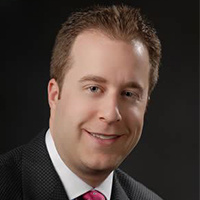Swartz Creek Collection Lawyer, Michigan
Sponsored Law Firm
-
 x
x

Click For More Info:
-
Marrs & Terry, PLLC
6553 Jackson Road Ann Arbor, MI 48103» view mapBankruptcy & Debt Personalized, Efficient Counsel
Marrs & Terry, PLLC have been helping individuals face a variety of legal challenges, including bankruptcy, estate planning and administration, and family law.
800-862-7221
Aaron J. Scheinfield
✓ VERIFIEDBankruptcy & Debt, Landlord-Tenant, Collection, Litigation, Construction
Aaron J. Scheinfield, born Farmington Hills, Michigan, December 1977, was admitted to the Bar in 2004. Education: University of Michigan (B.A. 2000); ... (more)
FREE CONSULTATION
CONTACTMark Ernest Ross
Commercial Leasing, Construction Contracts, Business Organization, Collection
Status: In Good Standing Licensed: 26 Years
Mitchell S. Dembo
Estate Planning, Family Law, Reorganization, Collection, Wrongful Death
Status: In Good Standing Licensed: 36 Years
Amy J. De Nise
Litigation, Estate Planning, Elder Law, Collection
Status: In Good Standing Licensed: 26 Years
Heather Valynn Burnash
Traffic, Medical Products & Devices, Criminal, Collection
Status: In Good Standing
Benjamin Jay Allyn
Workers' Compensation, Contract, Collection, Wrongful Death
Status: In Good Standing Licensed: 16 Years
Sherri L. Belknap
Family Law, Child Support, Elder Law, Contract, Collection
Status: In Good Standing Licensed: 24 Years
Dustyn Kyle Coontz
Federal Appellate Practice, Criminal, Collection, Animal Bite
Status: In Good Standing Licensed: 9 Years


 Tricia Terry Ann Arbor, MI
Tricia Terry Ann Arbor, MI AboutExperienced Michigan Lawyer
AboutExperienced Michigan Lawyer Articles
Articles

